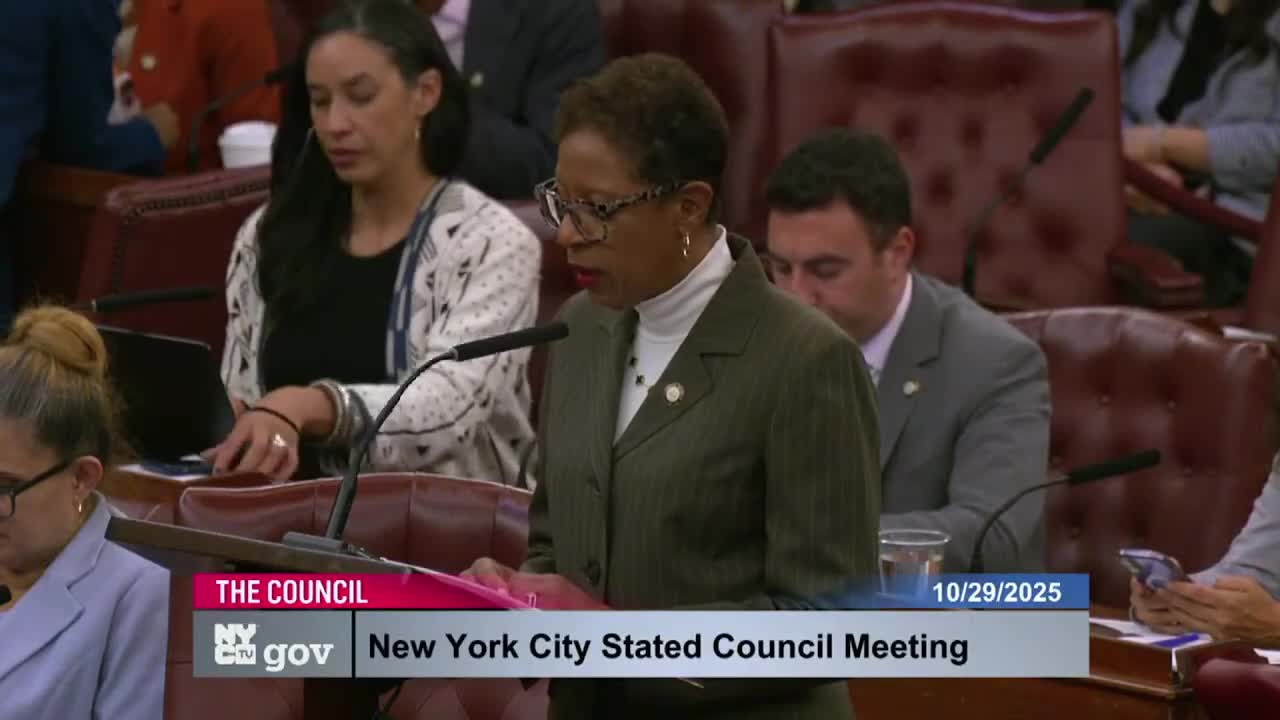City Council advances maternal‑health package to strengthen data, coverage and services
Get AI-powered insights, summaries, and transcripts
Subscribe
Summary
Council members on Oct. 29 passed a package of resolutions and introduced bills aimed at improving maternal‑health data reporting, expanding postpartum services and securing coverage for home monitoring devices. Sponsors characterized the measures as steps to address stark racial disparities in maternal outcomes.
The New York City Council on Oct. 29 approved several resolutions and advanced related introductions aimed at improving maternal health outcomes, standardizing reporting and expanding supportive services for pregnant and postpartum New Yorkers.
Speaker Adrienne Adams framed the package as a response to a citywide maternal‑health crisis and released a council report with policy and budget recommendations. On the floor she said, “Black New Yorkers are 6 times more likely to die of pregnancy related causes than white women,” and that addressing the crisis will require coordinated action across city and state agencies.
Key items discussed and acted on included resolutions calling on the New York State Department of Health to: perform regular reviews of the state patient occurrence reporting system (NYPORTS) and require hospitals to fill missing data (Reso 10‑87‑A); create a separate occurrence code and standardized definitions for maternal mortality (Reso 10‑86‑A); and confidentially share NYPORTS data with the New York City Maternal Mortality Review Committee (Reso 10‑82‑A). The council also passed a resolution asking New York City Health + Hospitals to report adverse maternal events to NYPORTS with an expanded standardized definition that includes events at least 30 days postpartum (Reso 10‑85‑A).
Council members described accompanying introductions and programs that would expand access to doulas in marginalized neighborhoods (Intro 12‑85‑A), establish a newborn home‑visiting program citywide over a multi‑year timeline (Intro 11‑46‑A), implement public education on opioid treatment during pregnancy (Intro 12‑84‑A) and create an automatic multilingual text‑messaging system for child‑health reminders (Intro 1001).
Council member Althea Stevens, chairing child/youth efforts, underscored the newborn home visiting expansion’s schedule: the bill would expand the program to 75% of priority neighborhoods by 2028 and citywide by 2030, with required reporting to ensure accountability.
Sponsors emphasized data and reimbursement reforms. Several resolutions requested state action—such as automatic Medicaid authorization for validated blood‑pressure cuffs for pregnant patients and full reimbursement for providers assisting patients—measures the council said would remove barriers to home monitoring and early detection.
Outcome and next steps: the maternal‑health resolutions were adopted on the floor by voice vote; text on some items calls for state legislative or regulatory action and will require follow‑up with the New York State Department of Health and Medicaid. Council members said implementation will require sustained budget and policy work in subsequent sessions.
Clarifying detail: sponsors repeatedly tied the package to findings from the city’s maternal mortality review processes and community convenings; the council released a report alongside the floor actions documenting recommended policy and budget steps.
